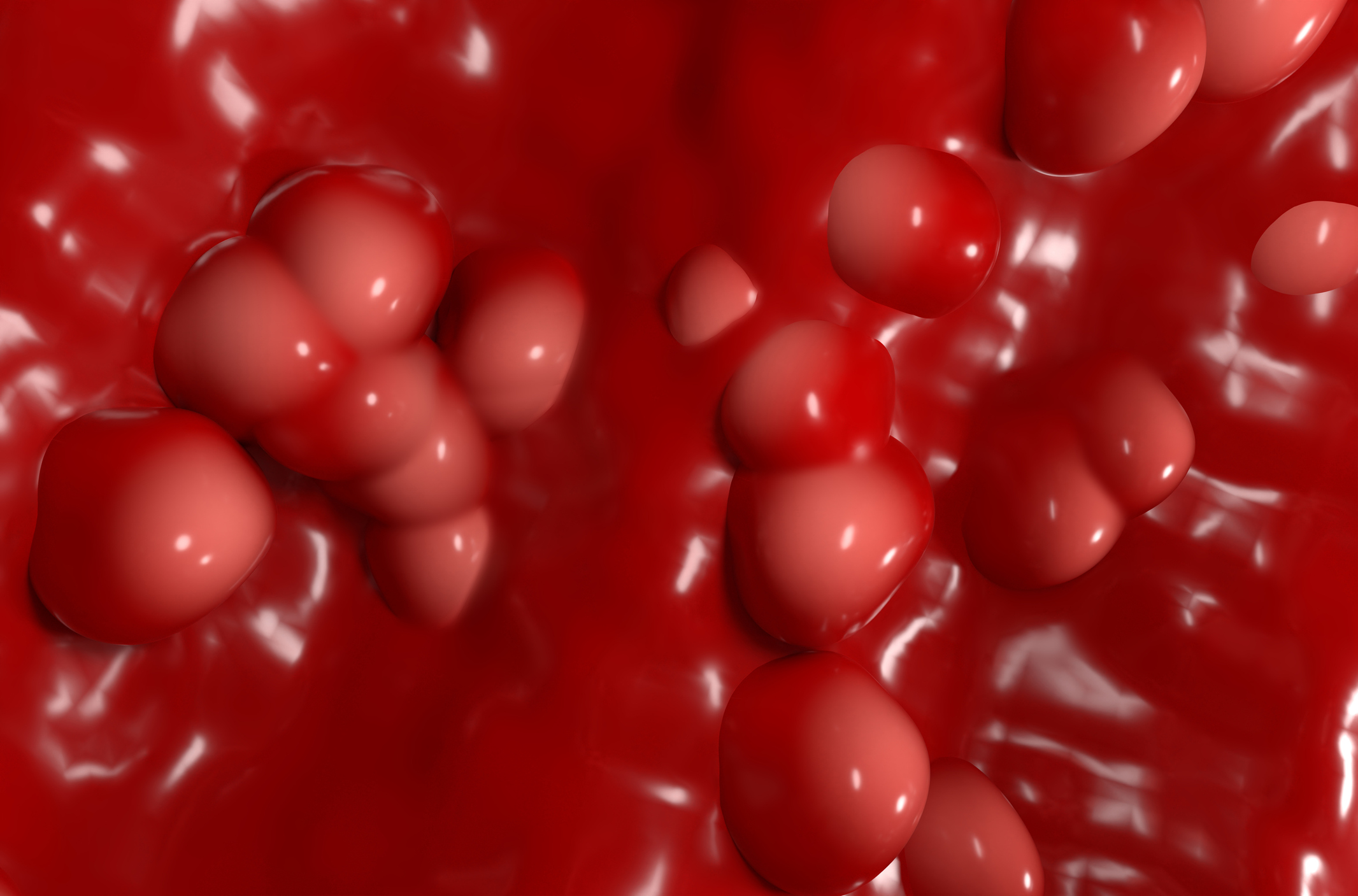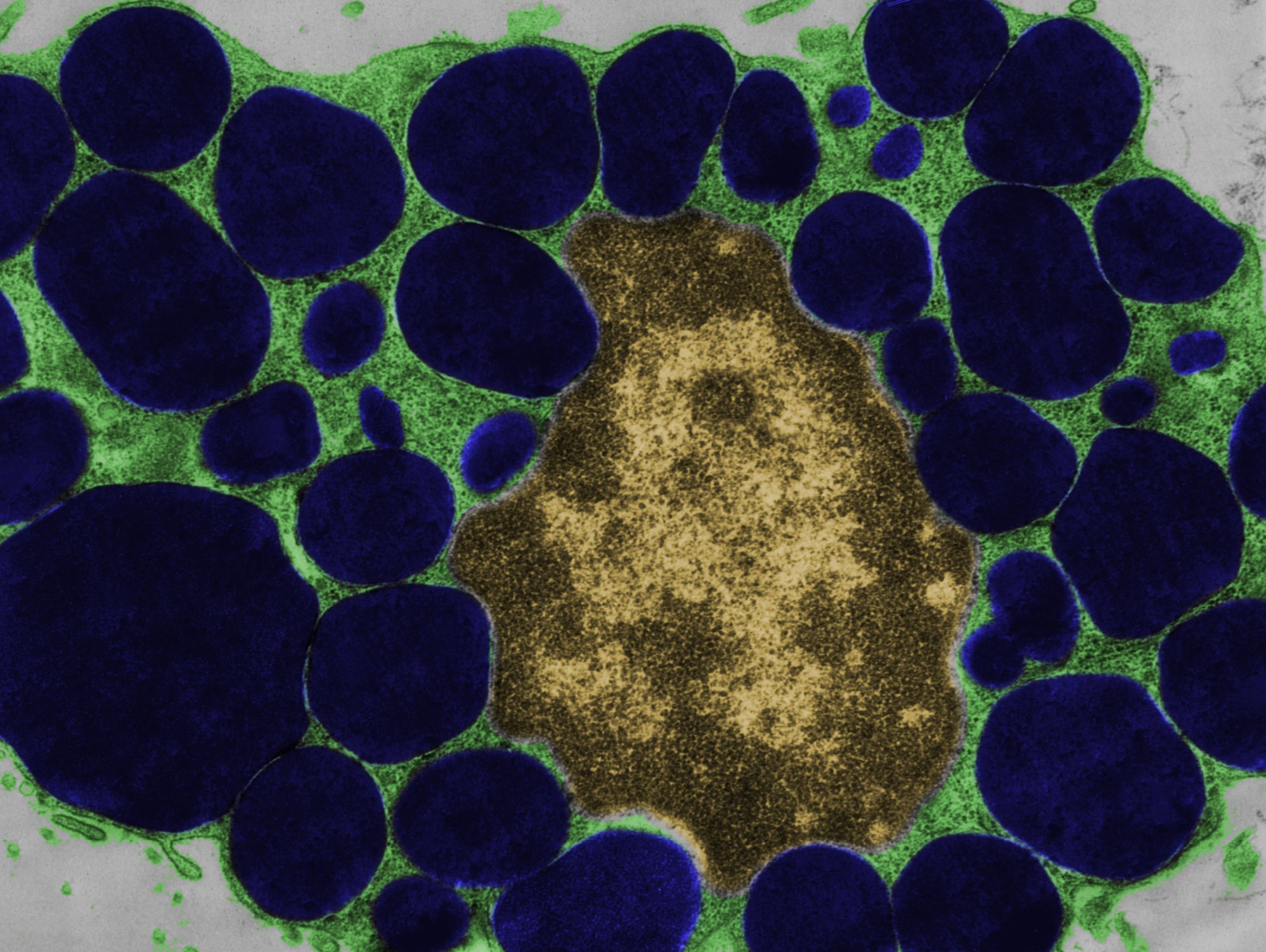Ovarian cancer is the fifth leading cause of cancer-related death in women, primarily because it is usually detected late, metastasizes early to the abdomen, and available therapeutic agents are usually temporary. New therapeutic approaches are therefore urgently needed. In a research project funded by the Wilhelm Sander Foundation, a Marburg research alliance has now discovered a signaling molecule in the abdominal fluid of affected individuals that is associated with short relapse-free survival and inhibits immune cells in the tumor microenvironment. The underlying molecular changes provide a basis for the development of new therapeutic options.
Ovarian cancer (ovarian carcinoma) is usually detected late, metastasizes to the abdomen early, and the available therapeutic agents are usually not permanently effective. As a result, ovarian cancer remains the fifth leading cause of cancer-related deaths in women, and new targets for improved therapies are urgently needed.
Ovarian carcinomas are also frequently accompanied by malignant abdominal fluid (ascites), which contains tumor-promoting signaling molecules. How these signaling molecules influence the clinical course of ovarian cancer has now been investigated by scientists* led by PD Dr. Sabine Müller-Brüsselbach, working group leader at the Institute of Molecular Biology and Tumor Research (IMT) at Philipps University Marburg, and Dr. Silke Reinartz and Prof. Dr. Uwe Wagner from the Marburg Clinic for Gynecology, Gynecological Endocrinology and Oncology. The goal of the research team’s work was to develop a basis for new prognostic and therapeutic approaches for the treatment of ovarian cancer.
It is now unquestionable that tumors can only grow and metastasize if tumor cells are supported in their activity by surrounding normal cells. These primarily include immune cells and cells of the connective tissue. The resulting tumor microenvironment also influences the clinical course and survival in a crucial way. In ovarian cancer, malignant ascites is a particularly relevant part of the tumor microenvironment (Worzfeld et al., 2017, Front Oncol.; Reinartz et al., 2019, Mol Oncol.). Of particular importance in this context are the scavenger cells of the immune system (macrophages), which are “re-educated” via signal molecules in the tumor microenvironment and as a consequence no longer eliminate the tumor cells but promote their malignancy.
As part of a two-year research project funded by the Wilhelm Sander Foundation, the Marburg researchers made an important discovery: “We were able to link a specific fatty acid (arachidonic acid) in the patients’ ascites to their relapse-free survival (see figure) and also demonstrate that arachidonic acid acts as a signal molecule that inhibits macrophage activity,” says Sabine Müller-Brüsselbach, explaining the most important findings of their investigations. According to this, arachidonic acid enters the macrophages and leads to modifications of specific proteins (phosphorylation), which, among other things, regulate their feeding activity. Of particular importance is that there are pharmacological agents that can prevent such changes. The scientists are currently investigating whether these active substances can also prevent the negative effect of arachidonic acid on macrophages and the course of the disease.
Source: Wilhelm Sander Foundation











